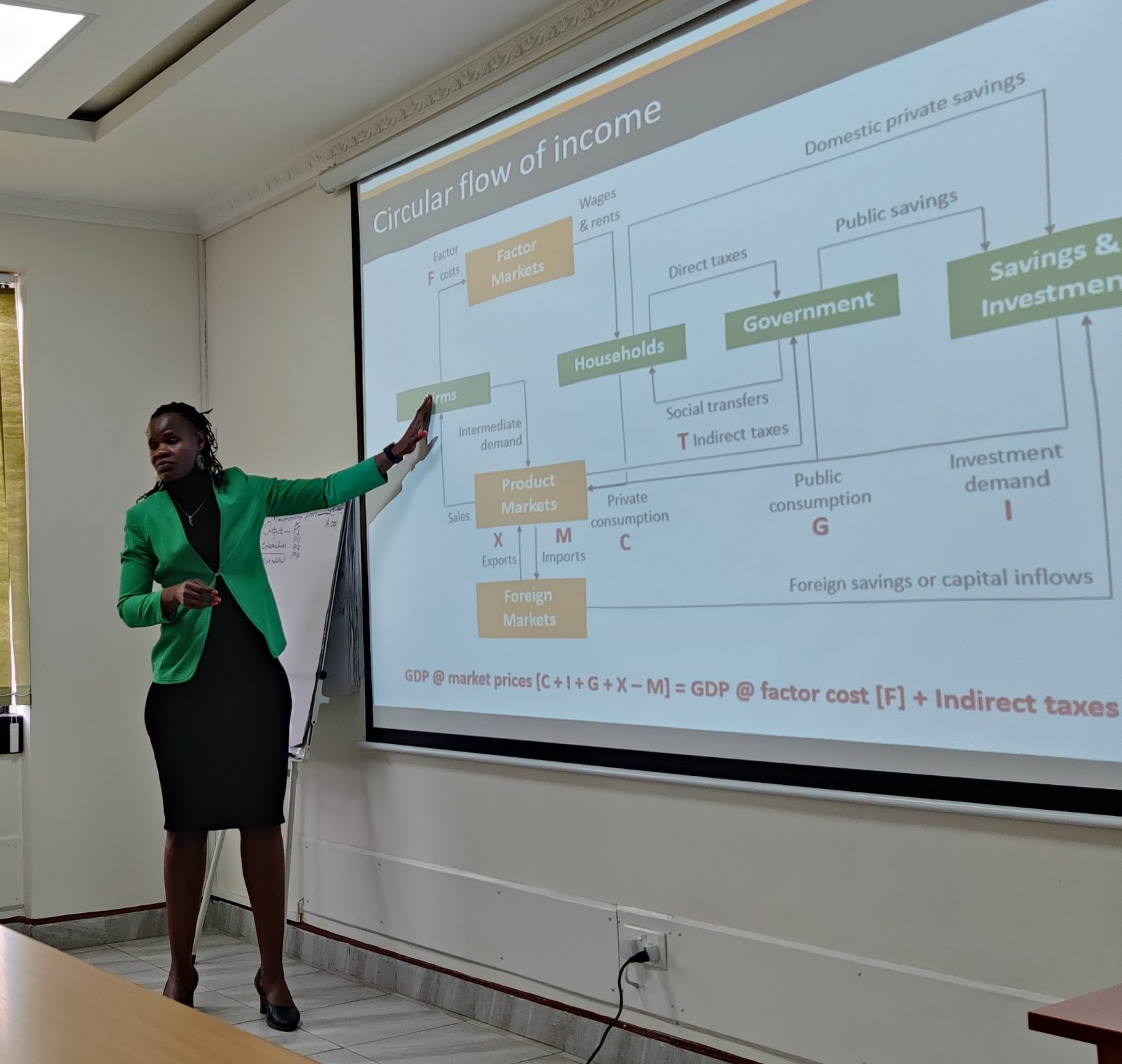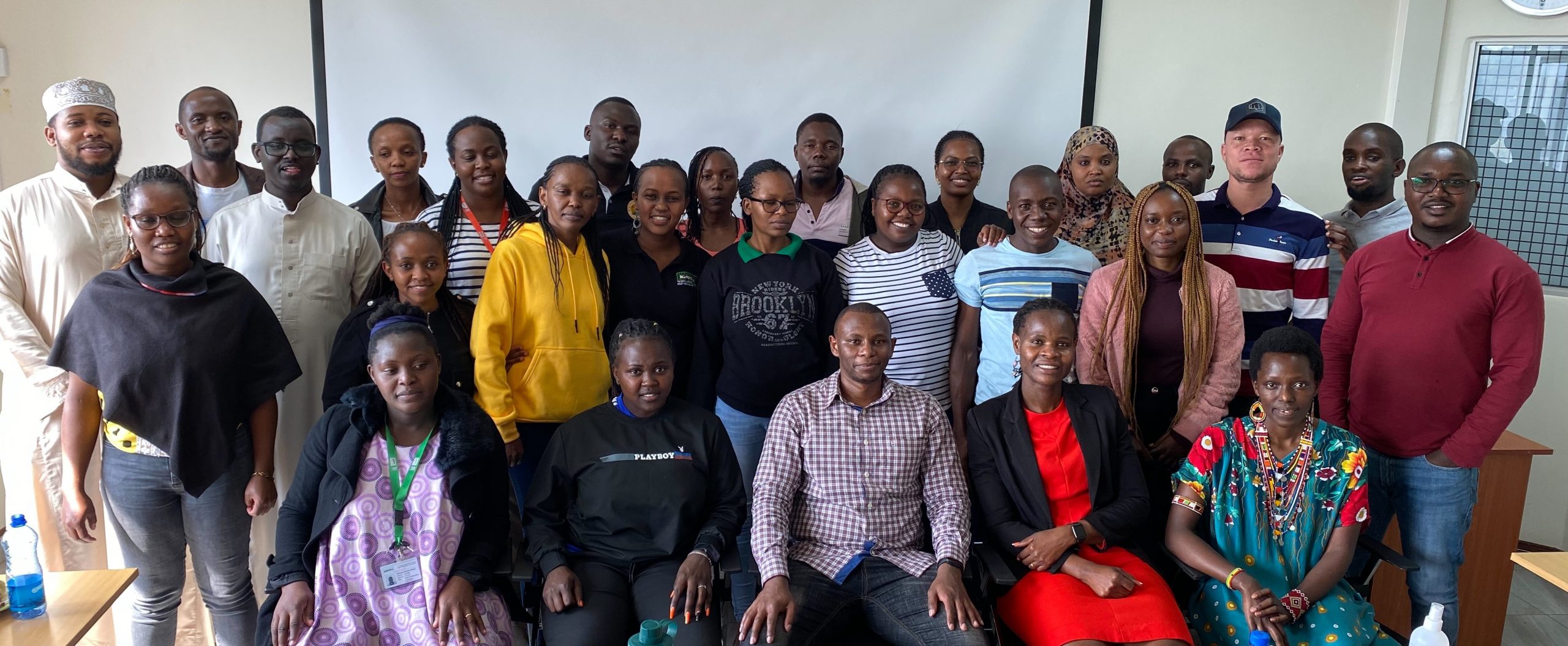By Harriet Mawia, Yumna Kassim, Clemens Breisinger, Naureen Karachiwalla, Jonathan Mockshell, Ara Go.
How can inflation be lowered, and more better-paying jobs be created? How can necessary public investments be funded and prioritized? By raising taxes and looking for external funding sources? Such questions are high on people’s and policy makers minds in Kenya and taking appropriate decisions and explaining their rationale to people is not always easy. Science can play an important role in decision-making by quantifying expected impacts of policies and evaluating existing programs.
In order to promote the role of science in policy making, the CGIAR Initiative on National Policies and Strategies (NPS) shares analytical capacity and tools with national research institutions and partners. In Kenya, one of NPS’ main partners is the Kenya Institute of Public Policy Research and Analysis (KIPPRA), which has the overall mission “to provide quality public policy advice to the Government of Kenya by conducting objective research and analysis and through capacity building”.
As part of NPS collaboration with KIPPRA, and young economists specifically, NPS capacity sharing activities focus on an existing, popular and working, structure which extends the activities’ reach among that network. The Young Professionals (YP) program by KIPPRA is a one-year competitive program where enhancement of technical capacity for research and evidence-based policy processes is provided to about 20 early-career participants under age 35, from public and private sectors, each year. The YP program introduces economic analysis tools and engages participants in the practical process of bringing science to policymaking.
Since the CGIAR initiative’s inception in 2022, NPS has provided guest lectures by its experts and senior scientists on a range of science-policy topics, including:
- Impact Evaluation Methods and Gender Considerations, delivered in May 2022 by Naureen Karachiwalla, who leads NPS impact evaluation work and Work Package 3. Lectures on impact evaluation methods were held with the YP cohorts of 2022 (in-person) and 2023 (virtual). The topics covered randomized control trials (RCTs), regression discontinuity and difference-in-differences methods. Examples of policies and programs for which the different types of evaluations can be used, included agricultural technology adoption (which is a large focus of Kenya’s Agricultural Sector Transformation and Growth Strategy) cash transfers, and infrastructure development projects, all of which feature in Kenya’s national and sectoral plans. The example policies and programs were used in practical demonstrations of the statistical code required to estimate causal effects using these econometric methods. The YPs generated research ideas that could use these methods and employed them in their research projects. They will also take this knowledge to their peers once they graduate from the program.
- Social Accounting Matrices (SAM) and Computable General Equilibrium (CGE) economywide modeling , conducted in July 2022 by Lensa Omune and Juneweenex Mbuthia, Research Officers at IFPRI Kenya, NPS and the CGIAR Initiative on Foresight and Metrics. An introductory course, delivered with the CGIAR Initiative on Foresight, covered key SAM concepts including Systems of National Accounts, Macro-SAMs, disaggregation of SAMs, Nexus SAMs, deriving key statistics from disaggregated SAMs, Economic Linkages, Multiplier Effects, investment and policy prioritization setting and Economywide Analysis. The Kenya SAM will be officially launched on June 22, 2023 during the KIPPRA Annual Conference.
- Process Evaluation for Development Objectives, delivered in April 2023 by Jonathan Mockshell who leads NPS political economy work and co-leads Work Package 3, and Thea Ritter, a NPS Political Economy Researcher. This training workshop was aimed at enabling the participants to apply process evaluation tools to analyze the design and operation of development interventions via hands-on experience. The workshop introduced process evaluation theoretical concepts and frameworks that have been developed in different disciplines to examine development interventions, to explain their outputs, outcomes, and impact and to generate evidence-based insights for improvement. The course introduced empirical case studies and provided opportunity for the participants to apply the concepts to the Kenya’s Youth Enterprise Development Fund and Women Enterprise Fund programs. The training workshop encouraged the participants to apply a critical perspective on process evaluation in development interventions to generate evidence insights to Bottom-up Economic Transformation.
- Project-level Women’s Empowerment in Agriculture Index (Pro-WEAI) and qualitative research methods, provided in May 2022 and March 2023 by the WEAI team at IFPRI under the CGIAR National Policies and Strategies (NPS) Initiative: The pro-WEAI training for KIPPRA YPs was based on the pro-WEAI Foundations Module, an online self-paced course that covers the fundamentals of pro-WEAI. The Foundations Module was shared as a prerequisite to the actual training, to maximize instructors’ and YPs’ engagement. In May 2022, the WEAI team conducted a 2-day training for KIPPRA YPs, covering key concepts in gender research, gender frameworks, mixed-methods research, and pro-WEAI and its applications. The training included two instructor-led sessions and homework assignments. In Mach 2023, the WEAI team organized a 2-day training focused on pro-WEAI qualitative protocols and analysis, as suggested by KIPPRA. This training consisted of asynchronous lectures, a group project, and two instructor-led sessions. These pro-WEAI trainings have received positive feedback and have benefited YPs seeking to apply pro-WEAI and mixed methods in their projects. These trainings are expected to enhance the capacity to effectively measure women’s empowerment and interpret results by strengthening the use of pro-WEAI in gender research within and beyond KIPPRA.
Through these capacity sharing activities, NPS supports the delivery of purposed knowledge that enables and encourages local experts to use scientific methods to take action on local issues, themselves, by of institutionalizing tools and expertise in the country, and to work towards co-production of policy research and analysis. Using science in policy making is not only likely to lead to better policy design and impact, but it can also help explaining the rationale for often unpopular measures – such as raising taxes – to the people.

IFPRI and NPS SAM/CGE trainer, Lensa Omune.Photo credits: Damaris Nanjira, KIPPRA

KIPPRA YPs 2021/22 and IFPRI and NPS SAM/CGE trainers, Juneweenex Mbuthia and Lensa Omune.Photo credits: Damaris Nanjira, KIPPRA